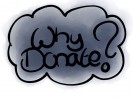I am in the middle of writing a cheerful, if somewhat personal, post about several different labels (specifically bisexual, queer and pansexual) that people who fancy people of more than one gender use and why.
This is not that post. This is the post that I tried to shoehorn into that other post when I came across an article, but that couldn’t fit into it because holy fucking ignorance, Batman, and there is no space for all the swearing I would really like to do in an article like that.
That post will happen, but not today.
Today, you see, I’m somewhere between outraged and actively hopping mad at the biphobic, cissexist drivel dressed up as inclusivity that is this article from Kaylee Jakubowski at Everyday Feminism that claims to define pansexuality. Before we start on everything that’s wrong with the article, though- starting with the title- let’s take a look at what is perfectly reasonable. Like this definition of pansexuality:
Pan-“ is a Greek prefix referring to “all” or “every” coming together as one.
…Putting this together with “-sexual”, which I’m sure we recognise as referring to one’s own sexual desires and habits, creates a word that roughly means “someone who is attracted to all sexes and genders of people.”
Perfect. If Jakubowski had stopped here, I would have had zero issues with this article.
Continue reading “The Case Of Pansexuality 101 And The Sea Of Biphobia And Gender Erasure.”




